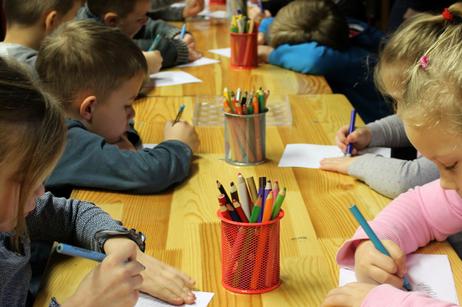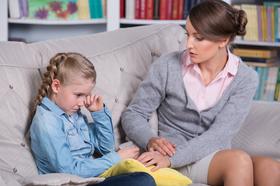The coronavirus pandemic has made its way around the world, changing the lives of millions all in the span of a few months. In the United States, many state governors issued stay-at-home orders that not only closed nonessential businesses and limited travel, but closed schools as well. Parents and teachers alike were forced to suddenly navigate the challenges of remote learning, some with more success than others. As things start to get back to “normal” in many states, parents are left wondering what the upcoming school year will look like and how they should prepare.
In this article, we’ll explore the subject of the upcoming 2020-21 school year and what it might look like. We’ll talk about the pros and cons of homeschooling as well and provide some tips for protecting your children if you choose to send them back to school.
Will Schools Be Open in the Fall?
Most Americans expect schools to reopen in the fall, but even if they do your child may not be returning to the same school they left in March. In a USA Today poll, 1 in 5 teachers revealed that they are unlikely to return to the classroom if their school reopens in the fall.
It’s no secret that the coronavirus pandemic upended our way of life, but even as many states begin to reopen we may be feeling the effects well into the next year. When it comes to the upcoming 2020-21 school year, there are no clear answers yet. The details will be left up to individual states and districts.
Though many school districts plan to reopen in the fall, few have released detailed plans regarding what that will look like. Potential scenarios involve staggering schedules where students alternate between remote learning and in-person education. Class sizes might be reduced to allow for social distancing and certain activities might be restricted.
In short, things will look very different for you and your child next year, even if you are able to send your child back to school. For many reasons, you might consider teaching your child at home instead.
Should You Consider Homeschooling Your Child?
Schools around the country shut their doors when nonessential businesses did, sending millions of school children home. In-person education shifted to remote education in districts that had the resources to make the change. Unfortunately, some districts were better able to make the change than others and a not insignificant number of children had little to no access to schooling for weeks.
Even if your child’s school plans to open for in-person instruction in the fall, it’s your responsibility as a parent to decide if that’s the best option for your child. In the wake of the pandemic, more parents are making the decision to homeschool their children at least in the fall of 2020.
Here are some of the benefits of homeschooling:
- Parents have greater control over their child’s curriculum and schedule – you can make adjustments according to your child’s particular interests or needs.
- It provides parents an opportunity to bond with their children and to be more directly involved in their education.
- Parents are able to provide more personal instruction than some public school environments allow and can spend more time on concepts that cause difficulty.
- You have the opportunity to incorporate non-traditional learning opportunities into your child’s education – this might include religious instruction, creative activities, and more.
- Parents can adapt the school curriculum to their child’s unique learning style to promote understanding and mastery of core concepts.
Though homeschooling is a great option for many families, it isn’t without its downsides. Here are some of the disadvantages of homeschooling your kids:
- It can be a lot of work to find the right curriculum program and to do the majority of the teaching yourself instead of sending your child to school.
- Homeschooling is a significant commitment of your time and can be difficult to juggle with a full-time job or other responsibilities.
- Many parents spend a significant amount of money on books and other learning materials – public school may be the more affordable option in many cases.
- Teaching your children at home may limit their opportunities to interact with other children or to participate in group activities like sports.
There are certainly benefits to homeschooling your children, especially when the 2020 school year is bound to be very different from previous years. Even so, homeschooling isn’t a viable option for everyone. If you work full time, for example, you might not have any other choice than to send your child back to school. Read on to learn how to protect your child if you do send him back to school.
How to Protect Your Child in School
The most important thing any parent can do in preparation for the upcoming school year is to stay up to date with their child’s school. If the school hasn’t released their education plan for the fall yet, they will be soon. You need to review the plan thoroughly and discuss it with your partner.
Children often have difficulty with change, so you’ll need to put just as much effort into preparing your children as you do preparing yourself for the fall of 2020. You and your partner should have a separate discussion about your school’s COVID-19 plan and decide how to communicate the upcoming changes to your children. It’s important to present a united front and to be positive with your children. If you come across as critical or uncertain, it could cause your children to become anxious as a result.
Here are some other ways you can help prepare your child for school in the fall:
- Make sure your children understand why it is important to be careful – even if they aren’t old enough to understand the details of COVID-19, you should be able to communicate concepts about avoiding sickness and taking steps to protect the health of other people.
- Teach your children proper hygiene and encourage them to wash their hands often – your child should also get used to wearing a mask, as it may be a requirement for in-person instruction.
- Set a good example for your child when it comes to things like handwashing, wearing a mask, and social distancing – if you don’t do it, your child may not think it’s important for them to.
- Talk to your partner and create a plan in case one of you gets sick – you should decide who will care for your child if neither of you is able to and communicate the plan to your child, if they are old enough to understand it without causing undue anxiety.
Here are some additional steps you should take to prepare for the upcoming school year:
- If you expect some of your child’s education to be done remotely, consider upgrading your home computer and internet service so your child’s instruction won’t be interrupted by technical difficulties. Make sure your child knows how to use the technology as well.
- Stay in touch with your child’s teacher and school – get on the email list if you aren’t already and make sure the school has your contact information. You may need to be a little more proactive this school year if you haven’t been in the past.
- Choose a secondary emergency contact for your child and make sure they know who it is. If something happens and you can’t be contacted, you should have a backup plan.
As much as you try to prepare for every possibility, you can’t predict exactly what the upcoming school year will look like. Gather as much information as you can from your child’s school to prepare yourself, but don’t forget to involve your children in the conversation as well.
Ask your children about their concerns with going back to school. Some children may be nervous about the disease itself while others may have fears of being behind in their learning. As a parent, it’s your job to ensure that your child is cared for in all aspects of life and that includes their mental wellbeing. There are plenty of resources online to help you answer your child’s questions about the coronavirus and your child’s school may have additional resources and tips for making the transition back to school.
Though it may not be clear what the fall of the 2020-21 school year will look like, one thing is for certain – your child’s education must go on. Follow the recommendations of the CDC and local officials and do what you can as a parent to prioritize your child’s education while keeping him safe and healthy.














